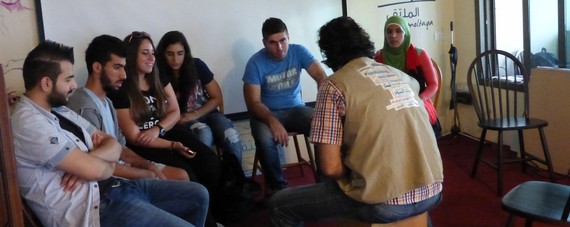Since the beginning of the Syrian crisis, which transcended into a bitter civil war, many questioned the viability and feasibility of Syrians living together under the same government, flag and values again. Suggestions and proposals for separation have made their way into news channels and to world leaders' "potential solutions" agendas. However, these suggestions have never come from Syrians, not the regime nor the opposition, not even from terrorist groups.
Syrians had grew to despise the idea of division and separation. For years, they lived with hopes of a potential Arab unity. However, after the civil war, no one in Syria enjoys the idea of union among Arab states anymore, mostly due to the dysfunctional Arab response to the Syrian crisis that proved the fundamental shortcomings of all Arabic-speaking countries united under one country, yet the feelings and emotions against separation and division - as concepts - have remained intact.
The premise of a united strong Syria has never been questioned by Syrians, the fight is currently about who will "win" the war and lead the whole of Syria, so the biggest question would be whether Syrian citizens can live together after the war? If so, how?
My answer is yes, they can, and undeniably so. History is full of examples of divided nations that were able to reconcile their differences and work together towards a prosperous future. Germany, now the strongest economy in Europe, was once at war and divided and many were asking the exact same question and saying that it would never be possible. The list goes on; Bosnia, South Africa, America, Kosovo and Ireland.
The two main drivers of long term sustainable reconciliation are first, stimulating enough economic activity to create inclusive prosperity that benefit each community and second, enforcing and preserving the nation's identity. Both are challenging but doable.
The economy is the single force that can make or break a nation. When the economy is going well people tend to be better-off, more satisfied, and less concerned about politics. Syria had been turned into a jungle, long before the war because of corruption, systematic stealing of resources, limits on trade and cronyism among other factors. All this led to people fighting for the limited resources left for ordinary citizens, which led over time to rebellion and further, a sectarian divide among Syrians.
When you live in a jungle, you eat what you kill and isolate yourself with "your" people in order for your "group" to have a bigger slice of the pie. This divide could be racial, ethnic, sectarian, urban, or suburban. In the Middle East, the strongest of division tend to be on religious grounds as people went inwards forming tight knit groups with their fellow believers. However, if markets are free and economic opportunities are vast then people will stop looking into differences and start looking into similarities. This will stop us building walls and start us building bridges in every possible way. Strong trade relations will make differences disappear and new social norms based on social and economic situations will emerge.
Therefore first step in reconstructing the Syrian society, after the war ends, is creating a sustainable open economy that applies free trade concepts coupled with giving fair shot for every person who is willing to work. Welcoming foreign investments which are essential to initiate change and for that we should ensure safety and work on increasing security, Bringing refugees back is very important to benefit from their accumulated skills in the West and newly acquired "Western" values. The system should be just and reward hard work and innovation, and simultaneously corruption should be denounced and fought with an iron fist.
Second driver to ensure a sustainable reconciliation is enforcing Syrian identity, through art, media, education, history and folklore. We have to rework on the Syrian identity and promote a more diverse, resilient, open and tolerant one. We can enforce that by a strong constitution, stronger civil society, technology, media, and diplomacy.
People must be informed about their heritage and history, away from politics and religion. Let them know their roots, take pride in the bright periods of their history and learn from their ancestors' historical lessons. Let them conclude that what brings them together is significantly stronger than what sets them apart. Let them understand their differences yet see the common thread which is their Syrian identity.

